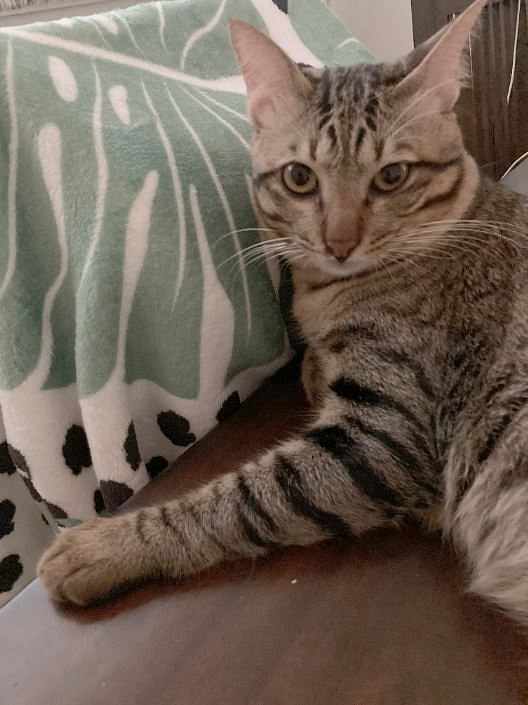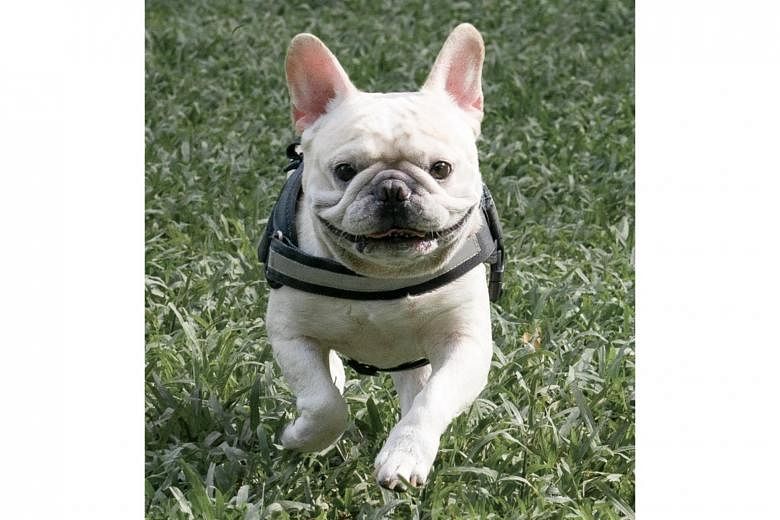SINGAPORE - In this fortnightly column, veterinarians from the National Parks Board answer questions about pet health and behaviour.
Avoiding heat stress in dogs
I have a French bulldog that loves being outdoors. I avoid taking him out when the weather is too hot or humid as I am afraid he will get overheated. What are some symptoms of heat exhaustion? What should I be mindful of when my dog is overheated?
Cher Ang
Dogs naturally get rid of excess heat by panting and to a much lesser extent, sweating.
Brachycephalic dog breeds, including the French Bulldog, are more susceptible to heat stress since the structure of their heads can affect their ability to pant effectively.
Heat stress can then manifest as excessive panting and increased thirst. If left unmanaged, it can progress to heat exhaustion and heat stroke, which has more severe signs such as weakness, collapse, disorientation and seizures. Heat stroke can also potentially result in multiple organ failure and death.
To minimise heat stress, avoid walking your dog in direct sunlight during the hottest times of the day and never leave him tied up under the sun or locked in a car.
If there are visible signs of heat stress when outside, take him to a water dispenser and provide fresh, cool drinking water.
Take him to the vet if the signs of heat stress are prolonged or not improving despite taking the measures above.
Loud meowing worries owners
My neutered 10-month old male kitten has developed a habit of meowing loudly and incessantly between 6 and 8am every day. We keep him out of the bedroom so he starts meowing at the door at that time if we are not up and about yet. He usually gets kibbles laid out at night before midnight. We have tried to discourage this constant meowing by ignoring him but he still keeps at it. Is there a way to change this behaviour?
Pauline Wee
A detailed understanding of the circumstances surrounding the behaviour - including the environment, what happens before and after the behaviour, potential motivations for it, and what reinforces it - is important in addressing the issue.
For example, if food is the motivation for his vocalisation, have you calculated how much your kitten should be eating daily?

If he is not getting sufficient food to meet his requirements, he may be vocalising early in the morning because he is hungry. Perhaps you can explore using an automatic feeder to dispense food at pre-set times of the day, timing it just before he starts vocalising.
In some cases, the vocalising behaviour could have been reinforced by what happens after he vocalises. For example, he might have vocalised to seek attention or play.
When he meows outside the room door and you open it, this may have inadvertently reinforced the behaviour. This means he may repeat the behaviour when seeking attention in the future.
If this is a contributing factor, you can schedule predictable social interactions, including play and social time, into his daily routine. You can also increase the chances of your kitten sleeping through the night by scheduling active playtime before bed.
If his behaviour continues to cause problems, seek help from an animal behaviour consultant.
Answers by Dr Denyse Khor, who cares for domestic pets as well as wildlife. Dr Khor, who graduated from the University of Melbourne in 2015, is a veterinarian in the Animal & Veterinary Service under the National Parks Board.
Write in
Have a query about your pet? E-mail it with clear, high-resolution pictures of at least 1MB, if any, and your full name to stlife@sph.com.sg. We reserve the right to edit and reject questions.
Fun fact
Did you know a cat's sense of smell is about 14 times as strong as a human's?
Cats have 200 million odour sensors in their noses while humans have just five million. Cats use these odour-sensitive cells to determine if food is safe to consume, as well as for searching for a mate.
But it also means that strong odours and fragrances - like household cleaners, scented candles, perfumes and pungent food - may cause discomfort to cats.

